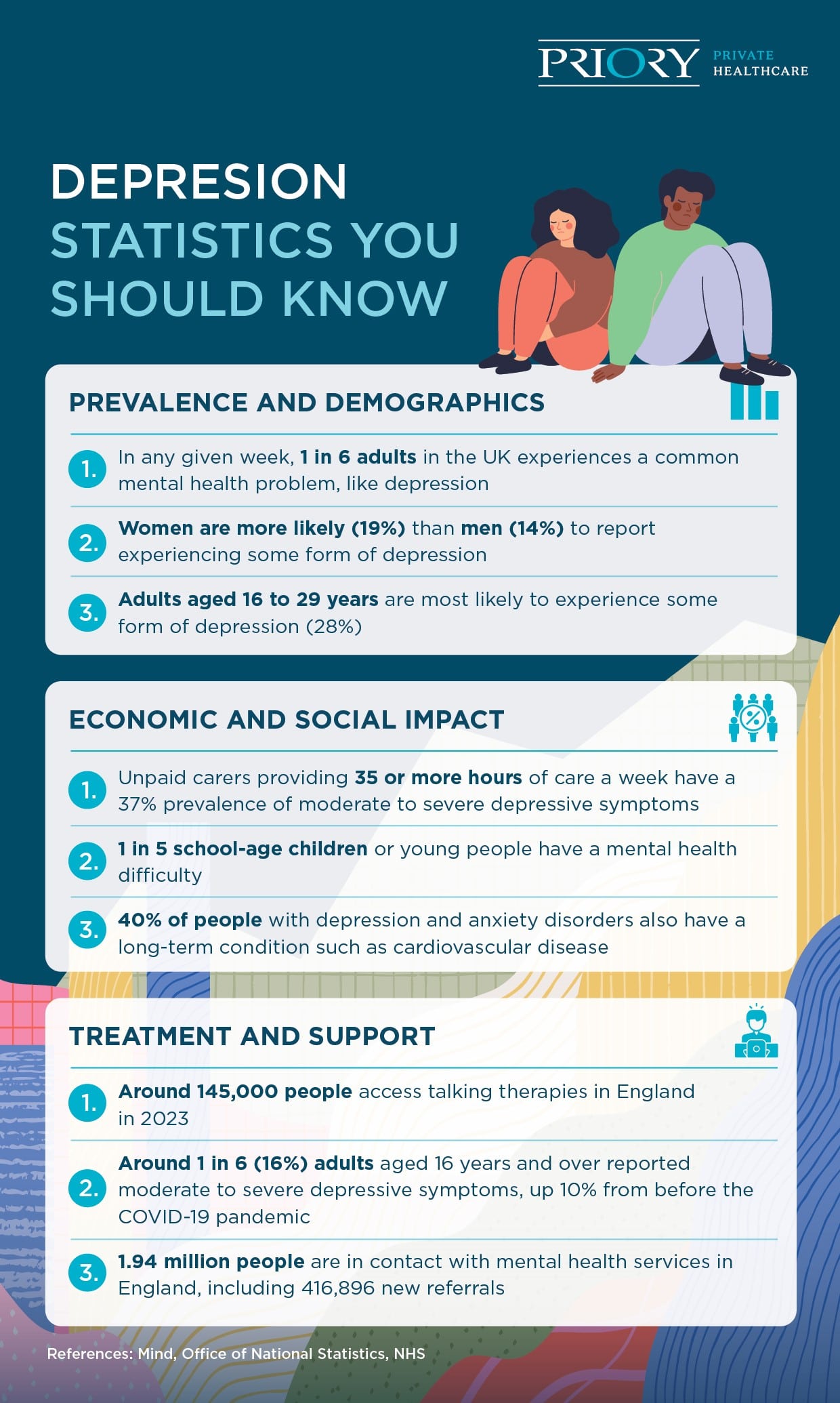Depression statistics 2025
Over 280 million people suffer from depression worldwide, and other recent facts and statistics about depression.
Depression is a mental health disorder that's characterised by feelings of sadness, anxiety, hopelessness and many other psychological and physical symptoms. Depression can affect people of all ages, genders and backgrounds.
Part of understanding the realities of depression is to get to terms with some of the research and statistics on the topic, separate from general mental health statistics. To help you develop awareness around depression, we’ve listed some depression facts and figures from leading organisations in mental health and public health.
In 2023, 1 in 4 new personal independence payment (PIP) awards were due to depression and anxiety. [3]

[1] Mind: Mental health facts and statistics
[2] ONS: Cost of living and depression in adults, Great Britain
[3] Mind: The Big Mental Health Report 2024
[4] NHS: One in five children and young people had a probable mental disorder in 2023
[5] NHS: Long term conditions and medically unexplained symptoms
[6] WHO: Global strategic direction for Mental Health
[7] The Lancet: Mental health matters
[8] NHS: Mental Health Services Monthly Statistics, Performance June 2024
[9] ONS: Coronavirus and depression in adults, Great Britain: January to March 2021